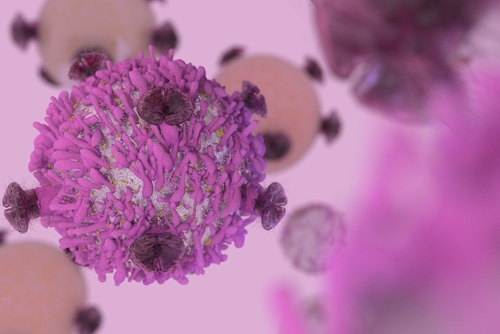Transgene’s TG6002 has been successfully given to a first person in a Phase 1/2a clinical trial testing it in colorectal cancer patients with inoperable liver metastasis, the company announced.
The treatment, delivered directly into the liver by infusion into the hepatic artery (intrahepatic artery infusion), is a next-generation immunotherapy that makes use of a Vaccinia virus to selectively infect cancer cells, called an oncolytic virus. As such, TG6002 is designed to leave healthy cells unharmed.
It works to kill cancer cells through selective replication and by bursting out of the host cell to infect other cells, as well as though several other mechanisms.
One is making cancer cells produce their own poison. The virus carries a proprietary gene, called FCU1, which can convert a non-toxic molecule called flucytosine (5-FC) into the common chemotherapy agent fluorouracil (5-FU). While 5-FC is administered orally, the chemotherapy agent will be produced locally. As such, it is expected to kill cancer cells without the known side effects of systemic administration.
TG6002 is also designed to make cancer cells release bits of their own components that are able to trigger strong immune responses, which also work to destroy a tumor.
Preclinical experiments have shown that TG6002 led to both shrinkage of the primary tumor as well as regression of distant metastases. They also demonstrated that a colorectal cell line highly resistant to viral-induced cell death was sensitive to a combination of TG6002 and 5-FC.
The ongoing clinical trial (NCT04194034) is assessing a combination of TG6002 and oral 5-FC in people with colorectal cancer who have at least one measurable liver metastasis, and who failed to respond to treatment with oxaliplatin or irinotecan-based chemotherapy.
The trial aims to recruit 75 patients at the NHS St James’s University Hospital in Leeds, U.K., and is being led by Adel Samson, an oncologist at The Leeds Teaching Hospitals NHS Trust and The University of Leeds.
“Previous trials with vaccinia-based oncolytic viruses have shown that these novel immunotherapeutics can modulate the tumor micro-environment. The addition of the local production of chemotherapy offers new perspectives in the treatment of CRLM [colorectal cancer with liver metastasis] patients,” Samson said in a press release.
The two-part study is designed to evaluate the safety, pharmacokinetics (how a drug moves through the body), and early efficacy of TG6002 combined with 5-FC.
In a first part, patients will be placed in groups of three, with each successive group receiving the next higher dose of TG6002. Doses will range from 1 million to 1,000 million plaque-forming units, and treatment will be administered via the hepatic artery at the study’s start. It may be repeated about a month and a half later.
This part’s goal is to establish an optimal dose for additional testing. Part 2 will continue to study the safety and efficacy of the established dose.
Early clinical data from this study is anticipated in the coming months.
“The start of this trial evaluating the safety and activity of TG6002 administered via an IHA [intrahepatic artery] infusion in patients with CRLM will enable us to further strengthen the data package for this novel oncolytic virus,” said Maud Brandely, MD, PhD, chief medical officer of Transgene.
“IHA infusion is a novel administration mode for oncolytics and we believe it will help broaden the scope of potential indications that could be targeted by vaccinia-based oncolytics,” Brandely added.
“The use of IHA infusion should enable a higher concentration of TG6002 in the liver tumors allowing it to become an additional effective and well tolerated treatment modality. I hope that this study will demonstrate that the multiple mechanisms of action of TG6002 are able to achieve better outcomes for the patients whilst limiting systemic exposure to 5-FU,” Samson said.
TG6002 is also being evaluated in another Phase 1/2a clinical trial (NCT03724071) where it is administered into the vein for the treatment of advanced gastrointestinal cancer patients. To date, no safety signals have been observed and the dose-escalation phase is ongoing.


